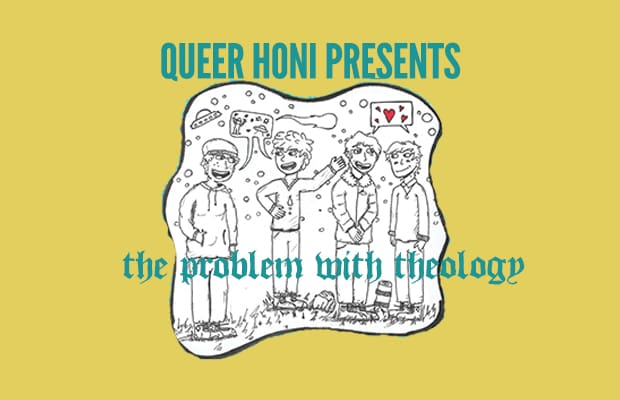Theology, broadly speaking, can be described as the study of the divine. In that sense, it can include both the philosophy of religion and studies of religion. However, more commonly, it involves the study of religious texts and their history. In particular, systematic theology aims to present the beliefs or doctrines of a religion in a coherent and rational account. However, systematic theology is not without its criticisms. To some, it is questionable whether it is possible to adequately describe a conception of divinity, especially when there are many different religions and the possibility of no such thing as a God.
Theology, especially of the evangelical variety, tends to be obsessed with finding the right answers to questions about God. With this, it seeks ways of gaining clarity of belief. This at times leads to the idolisation of religious texts such as the Bible in the sense that they become the be-all and end-all of religion. However, this is not necessarily an appropriate way to think about God – for example, as John Macquarie describes in Principles of Christian Theology, the Bible not only diverges on trivial details but on questions of ethics and theology, like the issue of marriage and sex. Macquarie explains that critical research has shown that traditional ascriptions of the authorship and dates of many of the Bible’s books are in fact doubtful or false.
As Peter Cameron mentions in Fundamentalism and Freedom, referencing a television series Jesus: The Evidence, some of the more common conclusions that biblical scholarship has reached include that the gospels were not the disciples’ eyewitness accounts, Jesus did not say some of the things that he is quoted to have said, and that the gospel of John is not as much a historical account but rather a theological construction by whoever wrote it and their community.
Despite this, even religious liberals can accept ideas such as the virgin birth, resurrection and the holy trinity without question. This is regardless of the evidence to the contrary. Take the gospel of Mark as an example: according to Delbert Burkett in An Introduction to the New Testament and the Origins of Christianity, Mark does not present a virgin birth, nor does he describe Jesus as ‘God’ or a “preexistent divine being”.
My point is not that you necessarily need to reject those beliefs, but that these beliefs, should not be held with absolute certainty. Instead of trying to define fundamental beliefs, we should ‘queer’ theology by taking a leap of faith and allowing for uncertainty. This, in turn, relates to queerness.
Being queer involves uncertainty. From the moment someone realises they’re queer, their whole world can get turned upside down. Any heteronormative world view is destroyed and there comes a period of unlearning. For me, it may be a question of how I can relate to a society that generally assumes straightness. For many, it is a question of how they can remain in their faith communities whilst acknowledging their queer identity. Being queer means you forge your own path.
In that sense, should the aim of theology be about finding absolute truth, or should it be a journey of faith and uncertainty, a journey where the end is never quite known? As Cameron mentions in Fundamentalism and Freedom, “The Bible consists of a collection of maps of other journeys by other people–always interesting and sometimes inspiring. But to prescribe it as the map which everyone must use would be disastrous: none of us would ever get anywhere.” I, for one, will never really know what the future will hold.





